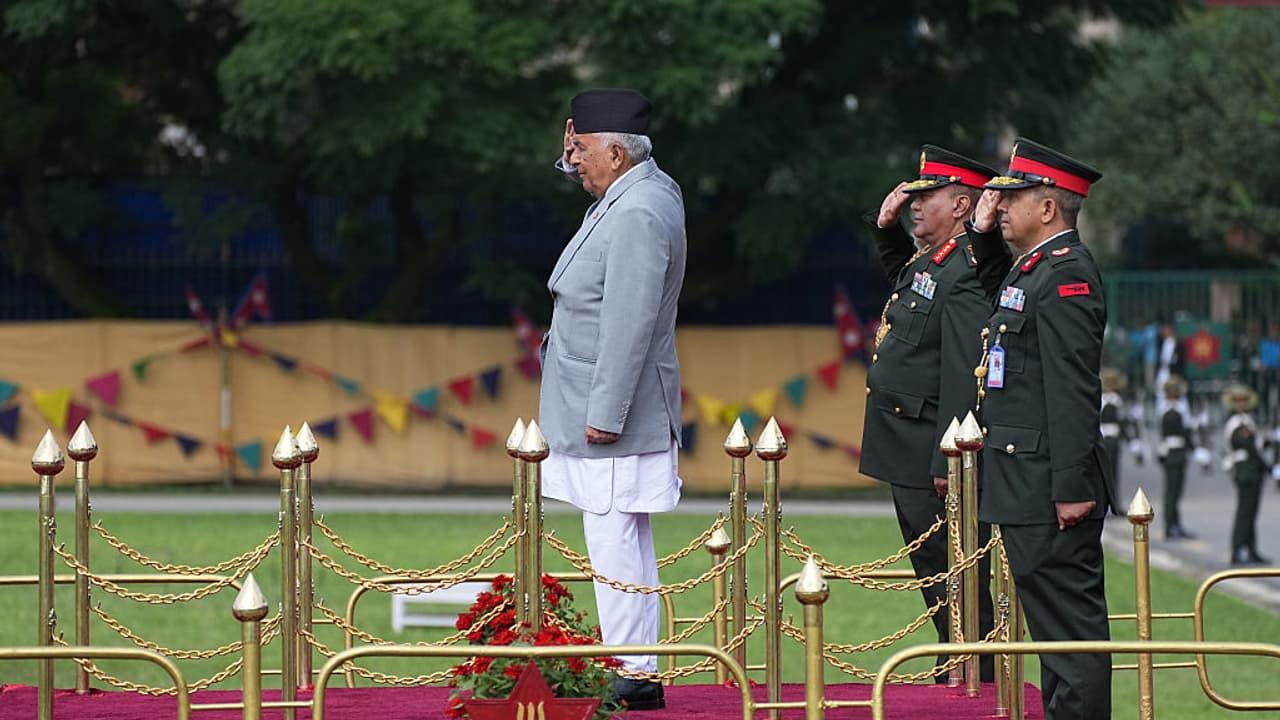Nepal Gen-Z Voters Get Electoral Rights After Youth Protests, President Amends Act
Kathmandu [Nepal]: Nepal President Ram Chandra Paudel on Wednesday, September 24 issued an ordinance to amend the Voter Roll Act, 2016, paving the way for Gen-Z voters to be enrolled on the electoral list. According to the President's Secretariat, the ordinance was issued under Article 114(1) of the Constitution, based on the recommendation of the Council of Ministers. It amends Section 4(2)(2) of the Voter List Act, which had barred registration after the announcement of an election date. The newly formed interim government led by Prime Minister Sushila Karki has called for elections on March 5 next year. According to the previous provision, "Once the date of election is announced, no voter registration shall be made for that election." This legal hurdle had prevented eligible citizens, particularly youth who recently reached voting age, from being listed in the voter roll.
Historic Ordinance
Many young people who played a role in the political change had not yet been registered as voters despite being eligible. The ordinance was brought to address this gap and ensure broader participation in the election. After a violent protest on September 8 and 9, then Prime Minister KP Sharma Oli had to step down from the post, which claimed the lives of 74 people. Following the change in regime, Nepali President Ram Chandra Paudel, on the recommendation of youth representatives, appointed former Chief Justice Sushila Karki as Prime Minister of an interim government. Karki, who took charge as the interim PM, also recommended dissolving the House of Representatives, one of the key demands of the agitators, giving Karki six months to conduct parliamentary elections CJ and first Nepali female interim Prime Minister Karki was appointed to the post on September 12. The protest movement led by Gen-Z's leadership argued that tens of thousands of youths could be prevented from exercising their right to vote under the existing law. Section 4, subsection 2(2) of the Voter Registration Act, 2073, stipulates,“No person shall be registered in the voters' list for the purpose of an election after the date of that election has been declared.” If the current law remains in effect, only those registered in the voter lists by September 12 will be eligible to vote in the House of Representatives elections. According to the Election Commission's report, as of the end of Chaitra (mid-April), a total of 18,148,654 voters have been listed for voting, marking the end of the previous Nepali year 2081. As many as 17,988,570 voters, 9,140,806 men, 8,847,579 women and 185 from other categories, were eligible to cast their votes in the previous elections held in November 2022. By April 2025, in two and a half years, the number increased by 160,054 to 18,148,654.
(Except for the headline, this story has not been edited by Asianet Newsable English staff and is published from a syndicated feed.)
Legal Disclaimer:
MENAFN provides the
information “as is” without warranty of any kind. We do not accept
any responsibility or liability for the accuracy, content, images,
videos, licenses, completeness, legality, or reliability of the information
contained in this article. If you have any complaints or copyright
issues related to this article, kindly contact the provider above.
Most popular stories
Market Research

- New Cryptocurrency Mutuum Finance (MUTM) Raises $15.8M As Phase 6 Reaches 40%
- Bydfi Joins Korea Blockchain Week 2025 (KBW2025): Deepening Web3 Engagement
- Yield Basis Nears Mainnet Launch As Curve DAO Votes On Crvusd Proposal
- 0G Labs Launches Aristotle Mainnet With Largest Day-One Ecosystem For Decentralized AI
- Ethereum-Based Defi Crypto Mutuum Finance (MUTM) Raises Over $16 Million With More Than 720M Tokens Sold
- Fintech's Gender Gap In Focus: Drofa Comms' Women Leading The Way Joins Evolvh3r's She Connects At TOKEN2049






















Comments
No comment